The best scientific TV series.
Science has recently become the thread of television series that combine historical recreation, conflict of interests and the struggle of individual talent against the conservatism of society.
Unfortunately, a quality program does not always guarantee audience success. I say regrettably because, as television is governed by a faith in the measurement of audiences, the lack of quantitative support can compromise, and indeed compromise, the continuity of very high-quality programs.
Science programs have not had audience support and, despite good intentions, they have not been achieved. Why has not science worked on television?
After years and years of development away from the general public, science has jumped into the media out of pure vital need. Faced with the danger of facing his disappearance in the midst of absolute indifference on the part of society, science and scientists chose to leave their lairs, and laboratories to communicate their work and the importance of it for society. They have left their space and have begun to appear in the media.
Today I want to recommend a list of series where science is the main object:
-House and medical diagnosis.
It is a series of American television of medical court issued by Fox for 177 episodes, divided into eight seasons between 2004 and 2012. The fiction follows Dr. Gregory House (Hugh Laurie), a genius of medicine with a certain aversion to treat with people, who directs the Department of Medical Diagnostics at Princeton-Plainsboro University Hospital in New Jersey. House is a specialist in detecting and preventing infectious diseases and nephrology, the branch of medicine that studies the kidney and its affections. To the politically incorrect doctor arrive several cases with complex histories to which House faces trying to avoid direct dealings with their patients.
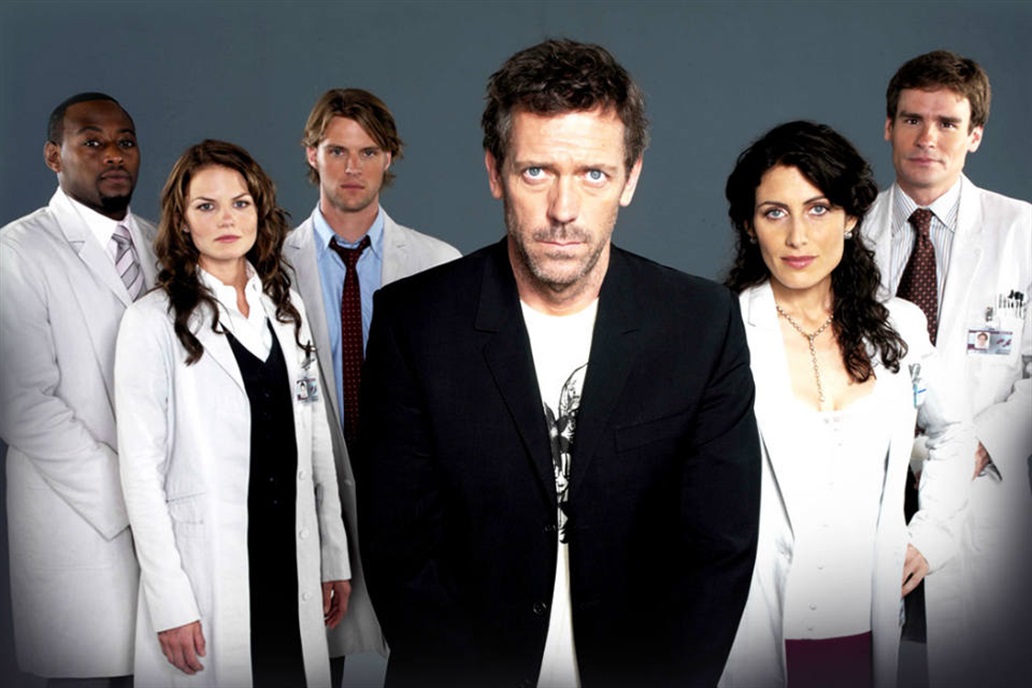
Source
-The Big Bang Theory and Asperger's syndrome.
Sheldon Cooper, one of the protagonists of The Big Bang Theory, is a theoretical physicist with an IQ of 187, two doctorates and a master's degree, which has a series of very peculiar manias. Although the co-creator of the series denies that Sheldon's personality is based on Asperger syndrome, the character's behaviors represent some behaviors of a person who suffers. The author of the passage, Ramon Cererols, defends that Sheldon is a caricature of the Asperger, since he shares a large number of characteristics with the disease, such as knocking on the door with a sequence of three strokes, facing questions from his friends with brutal sincerity, the hatred towards changes or their purely logical and rational reasoning.
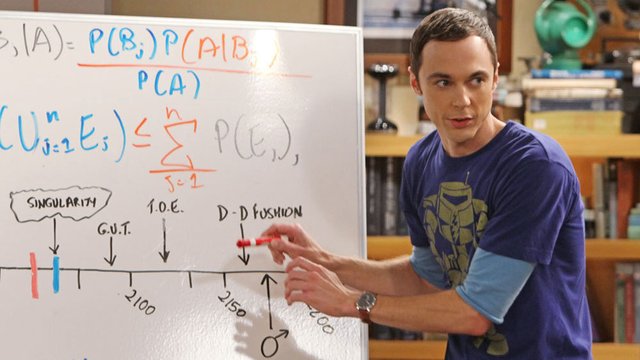
Source
Although Dr. Cooper is the figure that best represents the syndrome, there are other characters with some features of the disorder. Gil Grissom, from CSI; Spencer Reid, of Criminal Minds; Gregory House, from House; or the "crazy eyes" of Orange Is The New Black, are examples of the representation of this disease in television series.
The Big Bang Theory is about two brains that share a floor, Leonard, and Sheldon. Although both are doctorates in theoretical physics and are capable of calculating the probability of the existence of parallel universes, they have no idea how to relate to the rest of the world, especially girls.
The series begins with the arrival of Penny (Kaley Cuoco), the new neighbor who is installed on the opposite floor. Penny, who inhabits the vital and intellectual antipodes of both brains, alters the quiet sentimental life of Leonard and is a continuous detonator for the obsessive-compulsive disorder of Sheldon.
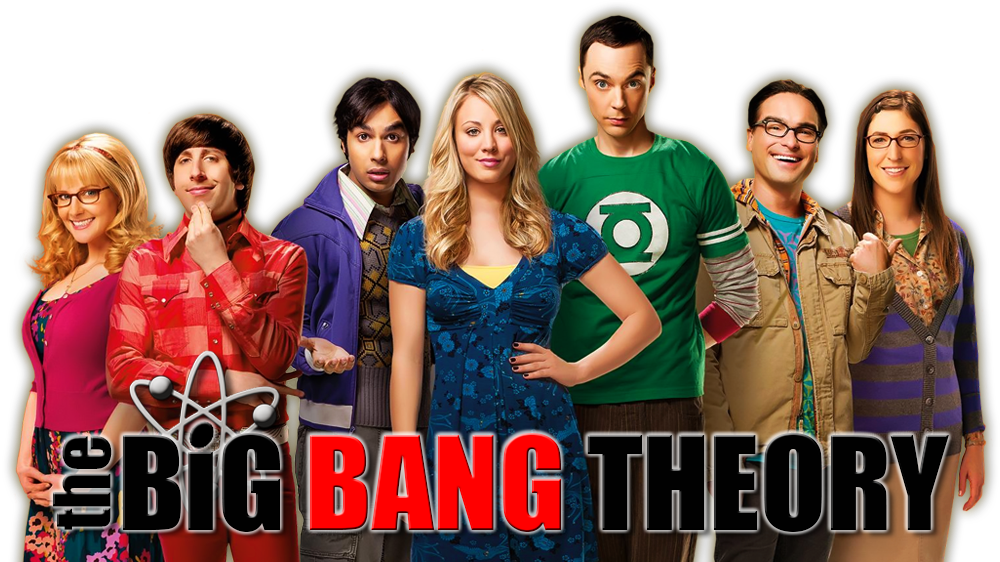
Source
-Nip / Tuck, Gray's Anatomy, and plastic surgery.
Sean McNamara and Christian Troy are two surgeon friends who run the McNamara-Troy plastic surgery clinic in South Florida. Sean has problems at home and tries to keep his family together, while Christian is a sex addict and uses his charm to bond with women. Sean takes the job seriously and, in addition, must correct Christian's mistakes. On the other hand, Christian has no worries when it comes to aesthetic operations; instead, Sean is quite disillusioned with the work, since he finds it very superficial.

Source
"Plastic, aesthetic and reconstructive surgery is the medical-surgical specialty that deals with the correction of any congenital, acquired, tumoral or simply involutive process that requires repair or replacement, or that affects the body's shape or function". This is the definition that María del Mar Vaquero, an expert in plastic surgery and author of the chapter, proposes to define her specialty. The doctor believes that the representation of her profession falls into clichés and focuses on the frivolous side, trying to bring it closer to reality with the use of intraoperative images.
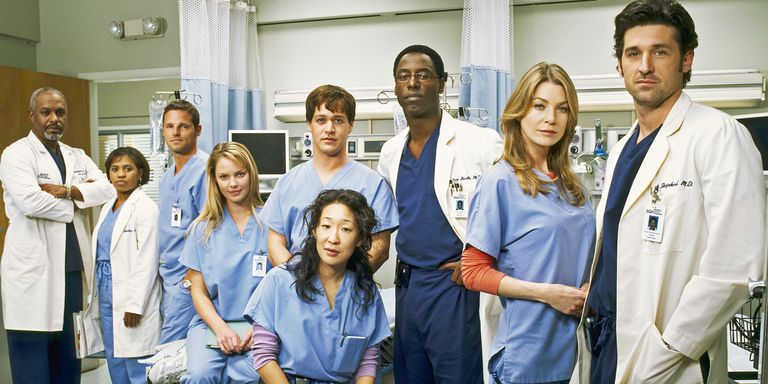
Source
"A plastic surgeon can take care of repairing malformations, surgically treat the burned, reconstruct an anatomical defect, transplant limbs, and faces, and perform aesthetic surgery, among others," says the expert.
-CSI and forensic medicine.
Crime Scene Investigation (CSI) is an American series inspired by the work of a forensic team, which investigates crime scenes and tries to solve the murder mystery. Ballistic tests, fingerprint detection, DNA analysis and other technologically advanced methods from which results are obtained almost immediately subtract plausibility from the story. The most common, say the four authors of this fragment, is to find tooling restrictions, that some techniques cannot be applied or that they take years to be analyzed. The series reinforces the perception that criminals always leave enough clues to allow the crime to be resolved, but there are situations in which there simply is not enough evidence to solve it.
What was your favorite?
• CSI: Crime Scene Investigation (2000-2015, 15 seasons)
• CSI: Miami (2002-2012, 10 seasons)
• CSI: NY (2004-2013, 9 seasons)
• CSI: Cyber (2015-2016, 2 seasons)
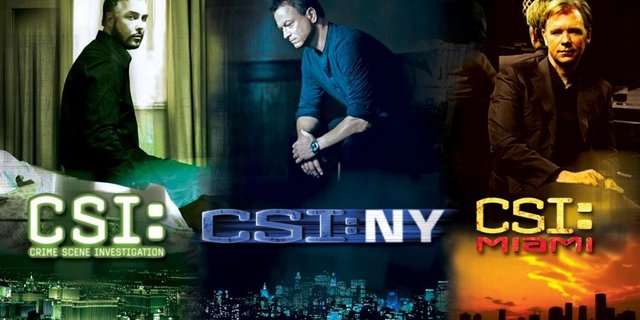
Source
-Breaking Bad and methamphetamine addiction.
"The issue of addiction presented in the series agrees with the scientific evidence and clearly shows the addictive process," explains the article's author, Patricia Robledo. Breaking Bad exhibits the world of drugs from all its perspectives: the effects produced by methamphetamine, the consequences of its consumption, the synthesis and distribution of drugs, the war for control of the market or the different profiles of drug addicts, among others.
It is a creation of Vince Gilligan that, with the series starring Bryan Cranston and Aaron Paul, has reached what many people call (and I, the truth, I join it) a masterpiece of television.
Breaking Bad not only has a brave and risky argument that leaves our pupil imbued with great moments of emotion and action, but also works its plots and characters with the dedication of an artisan, offering brilliant pieces and unforgettable fragments.
Reasons to see it:
• The harsh reality
• Assembly, realization: Audiovisual tools
• The evolution of the characters
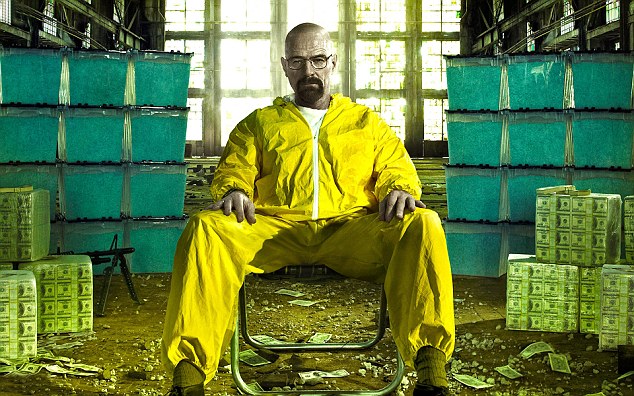
Source
-The Walking Dead and the imaginary of the epidemic.
On this occasion, collaborators Josep M. Comelles and Enrique Perdiguero Gil wanted to make a historical journey through the imaginaries of the living dead and their relationship with epidemics. Among the fears most represented on television, they cite the classic epidemic outbreaks from a human vector, the outbreaks of hemorrhagic fever of viral origin and the threat of biological weapons.
The book places this series in a scenario that combines several of these fears. It is no coincidence that The Walking Dead is based on a graphic novel in which viral infection is the major cause of the apocalypse, in a context in which the threat of biological warfare, generated after 9/11, fueled popular fears, The infection spread in the series has a more viral than bacterial nature, which means that the dead are not resurrected, but transformed.

Source
-Masters of Sex and sexology.
Based on two real characters, this series is set in the America of the 50s and 60s and the need of its protagonist, William H. Masters, to bring female sexuality to light. Dr. Masters and his secretary, Virginia Johnson, revolutionized sexology with their studies on intimate relationships, therapy, and sexual dysfunctions. They defined the phases of the human sexual response (desire, excitement, plateau, orgasm, and resolution), their contributions to sexual therapy are still effective today and determined that the difficulties in sex are the result of the relationship and not from one of the parties. The professionals left the prejudices aside to help thousands of people with their controversial investigations.
In a time when sex is a taboo subject, gynecologist William Masters, played by actor Michael Sheen, meets Virginia Johnson, who is brought to life by Lizzy Caplan, and both are willing to do everything possible to change the mentality of the people in relation to an aspect that they consider totally natural. Thanks to their efforts and their research, little by little they are achieving their goal and modernizing American society.
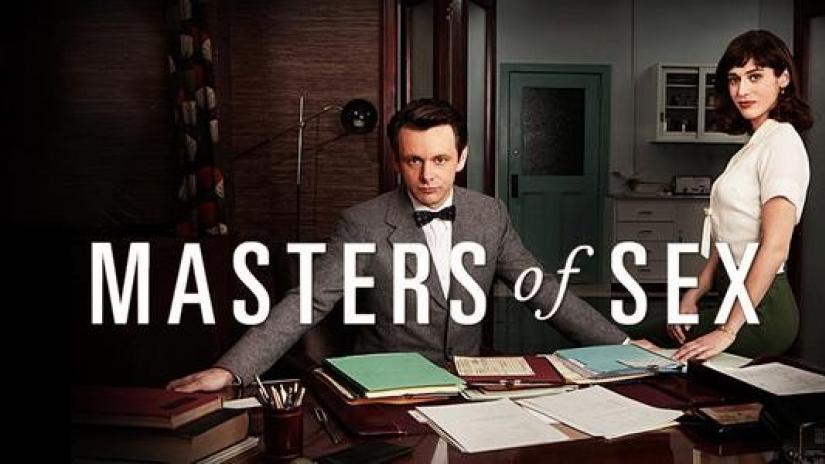
Source
-The Sopranos. The psychoanalysis.
The recognition of the Psychoanalytic Association of America shows that Los Soprano is the television series that best represents modern psychoanalysis. The author of the chapter, Oriol Estrada, explains that Freudian psychoanalysis is "a theoretical and explanatory model of emotions, a method of investigation and a form of therapy, criticized for its emphasis on the sexual issue."
The mafioso Tony Soprano, the main protagonist of the production, faithfully represents the recurrent behavior of real patients, for example, by denying their problem or by expressing their fear that they discover that they are receiving psychiatric treatment. The figure of Dr. Melfi (the psychiatrist in the series) has been criticized for her lack of professionalism since some experts believe that she reveals too many details of her personal life to the patient when she should show a more distant and passive attitude. When you face the series from a psychological point, discover many things that perhaps went unnoticed between beatings and murders.
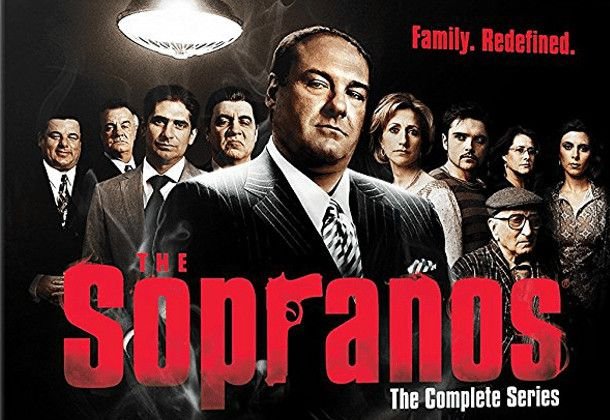
Source
-Angels in America, The Normal Heart, and Positius: HIV and AIDS.
Each of the series is located in a historical moment that determines the social perception of the disease. While The Normal Heart characterizes AIDS as "gay cancer" because of the popular belief that it is only spread among homosexuals, in Angels in America there is more information about the transmission routes, although it is just as stigmatized. In the case of Positius, the human immunodeficiency virus (HIV) is established as the central axis of the plot, struggling to break down the stereotypes and remove prejudices about the people who suffer it.
Ángeles en América is a harsh and unvarnished chronicle of the beginning of the spread of the AIDS virus in 1985 in different areas of New York City. The story is told through various characters and couples of the homosexual community, who see their lives affected by the appearance of AIDS directly or indirectly when the appearance of the virus was synonymous with death and shortly before the appearance of drugs who stopped him.
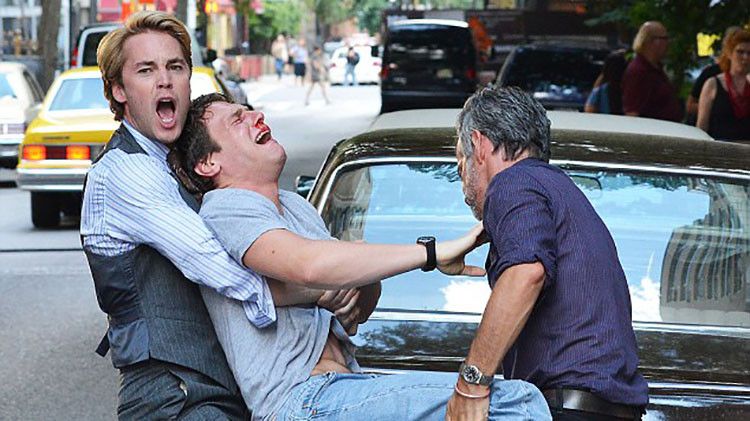
Source
The quality of its director Mike Nichols and its main actors Al Pacino, Meryl Streep and Emma Thompson, made the series a real hit that was endorsed at the ceremony of the Emmys, where he won nothing more and less than 11 awards of 21 nominations, devastating in its category.
Congratulations! This post has been upvoted from the communal account, @minnowsupport, by robertoromero from the Minnow Support Project. It's a witness project run by aggroed, ausbitbank, teamsteem, theprophet0, someguy123, neoxian, followbtcnews, and netuoso. The goal is to help Steemit grow by supporting Minnows. Please find us at the Peace, Abundance, and Liberty Network (PALnet) Discord Channel. It's a completely public and open space to all members of the Steemit community who voluntarily choose to be there.
If you would like to delegate to the Minnow Support Project you can do so by clicking on the following links: 50SP, 100SP, 250SP, 500SP, 1000SP, 5000SP.
Be sure to leave at least 50SP undelegated on your account.